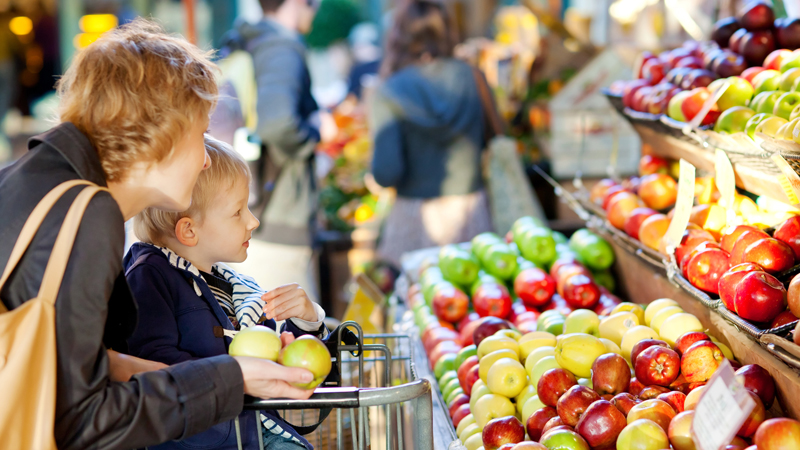Teaching Children About Food and Sustainability Through Market Visits
Introduction
In today’s world, where the impact of our actions on the environment is increasingly evident, it becomes crucial to instill in children a sense of responsibility towards their health and the well-being of the planet. One effective way to achieve this is through engaging experiences, such as accompanying them to the market. In this article, we will delve into the significance of market visits in educating children about food choices, sustainability, and societal values.
The Market: An Ecosocial Environment
The market serves as more than just a place to purchase goods; it is an ecosocial environment where values related to sustainability, environmental awareness, and social justice are learned and cultivated. As children accompany their parents through the bustling aisles, they witness firsthand the diversity of products, the interaction between producers and consumers, and the importance of supporting local communities.
Learning Through Observation and Interaction
As children select fruits, vegetables, and other produce, they are exposed to a wealth of learning opportunities. Guided by their parents or caregivers, they learn to appreciate the colors, shapes, and textures of different foods. Moreover, they gain insight into the journey of food from farm to table, understanding concepts such as seasonality, food miles, and the environmental impact of food production and transportation.
Fostering Conscious Food Choices
At the market, children are encouraged to make conscious food choices, guided by factors such as nutritional value, environmental impact, and ethical considerations. By reading labels, discussing the origins of products, and exploring concepts like food waste and sustainable farming practices, children develop a deeper understanding of the interconnectedness between food, health, and the environment.
Empowering Children Through Financial Literacy
Market visits provide an ideal opportunity to introduce children to basic concepts of financial literacy. By setting a budget and allowing children to make purchasing decisions within that framework, parents teach valuable lessons in budgeting, prioritization, and resource management. Through these practical experiences, children gain a sense of autonomy and responsibility in managing their finances.
Developing Social and Communication Skills
Interacting with vendors and other shoppers at the market helps children develop essential social and communication skills. From negotiating prices to seeking assistance and navigating social dynamics, children learn valuable lessons in interpersonal interactions. These experiences foster confidence, adaptability, and empathy, preparing children for success in diverse social settings.
Cultivating a Sense of Environmental Stewardship
By engaging children in discussions about the environmental impact of food production and consumption, parents instill in them a sense of environmental stewardship. Children learn to appreciate the interconnectedness of all living beings and the importance of preserving natural resources for future generations. Through small actions, such as choosing locally sourced produce or reducing food waste, children contribute to a more sustainable future.
Transitioning to Independent Market Visits
As children grow older, they may express interest in visiting the market independently. While this milestone represents a significant step towards autonomy, it is essential for parents to ensure that children are prepared and equipped with the necessary skills to navigate the market safely. Gradually increasing autonomy, establishing clear guidelines, and fostering open communication are key to empowering children to make responsible decisions.
Conclusion
In conclusion, market visits offer a rich educational experience for children, encompassing lessons in food literacy, sustainability, financial management, and social skills. By involving children in the shopping process and encouraging critical thinking and dialogue, parents play a vital role in shaping their children’s attitudes and behaviors towards food and the environment. Through these meaningful interactions, children not only gain practical knowledge but also develop a lifelong appreciation for healthy, sustainable living.









